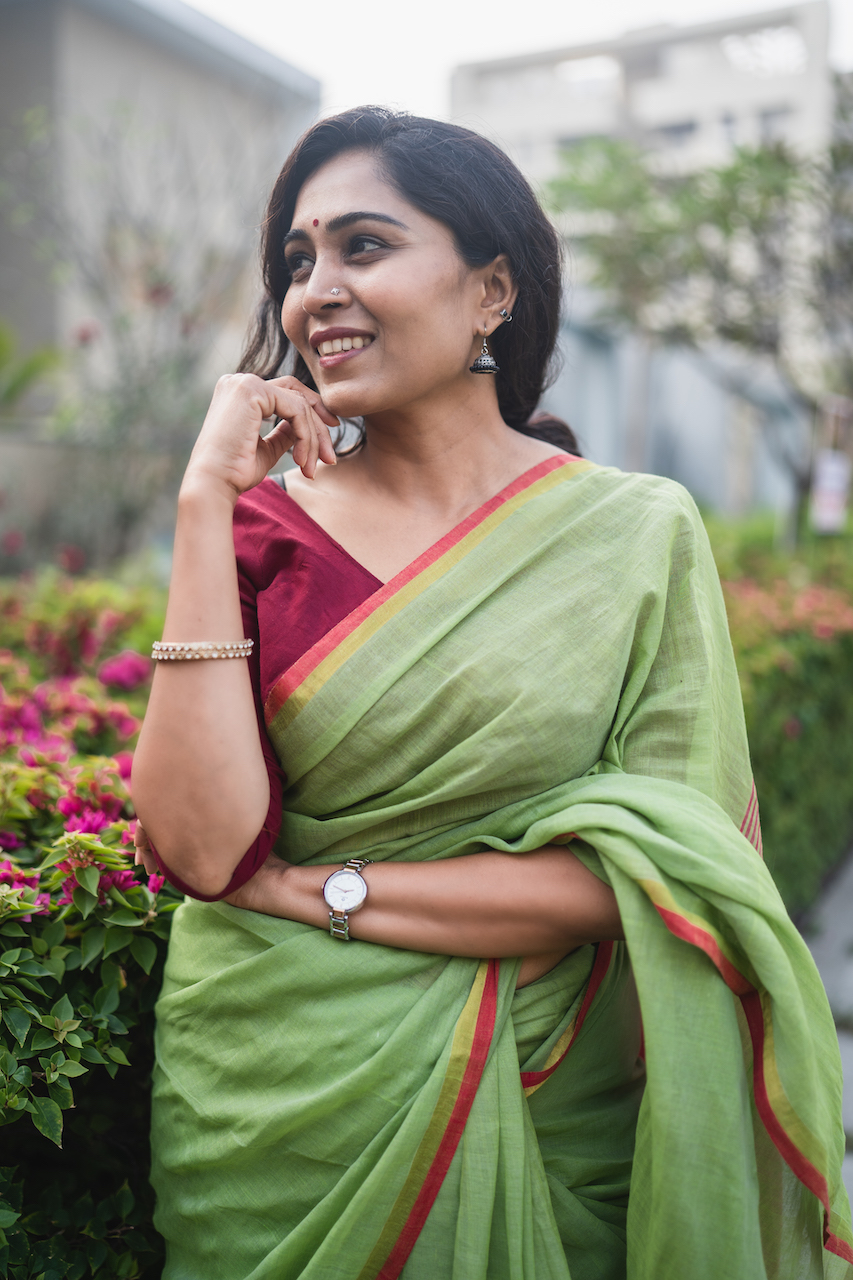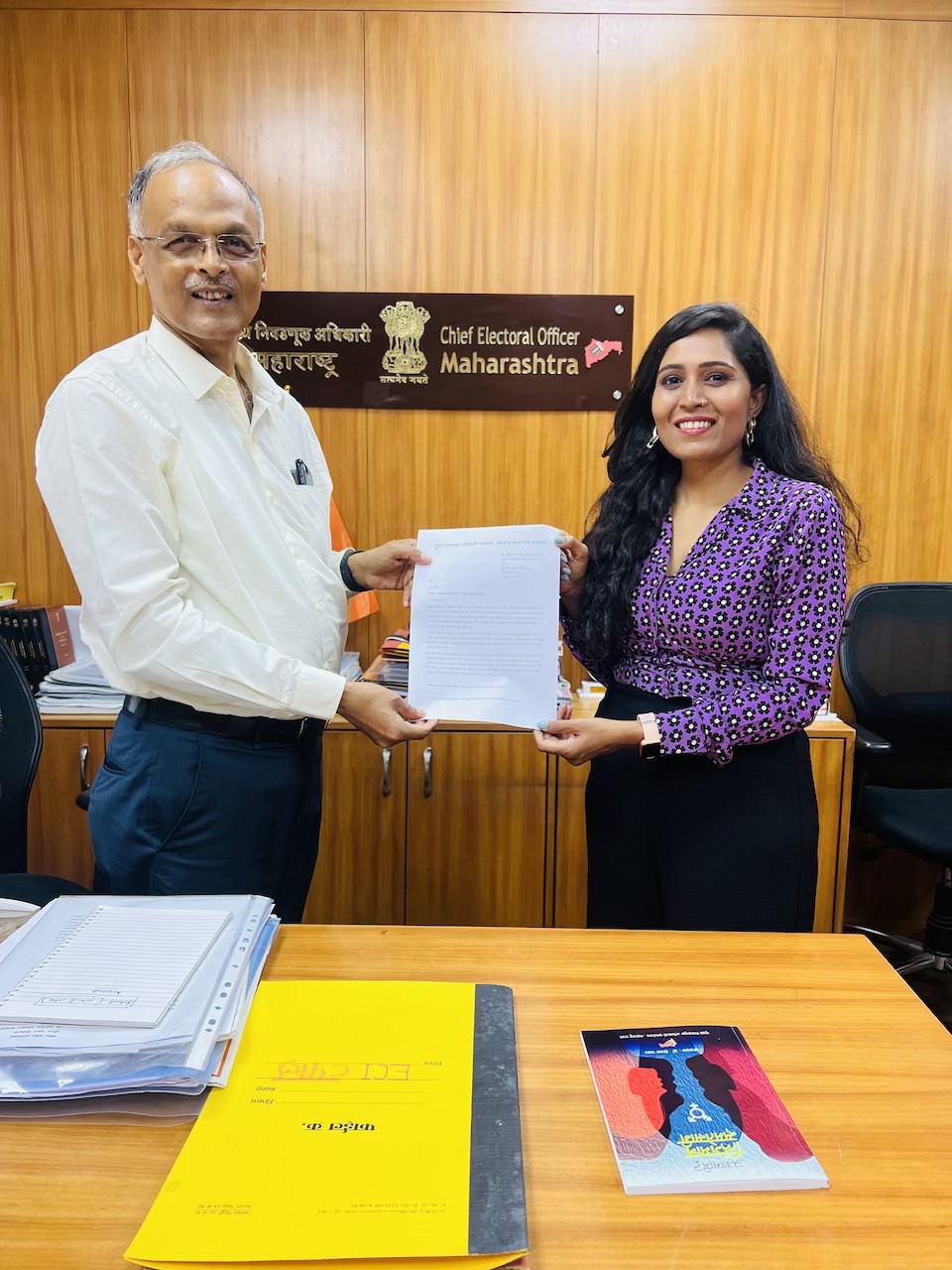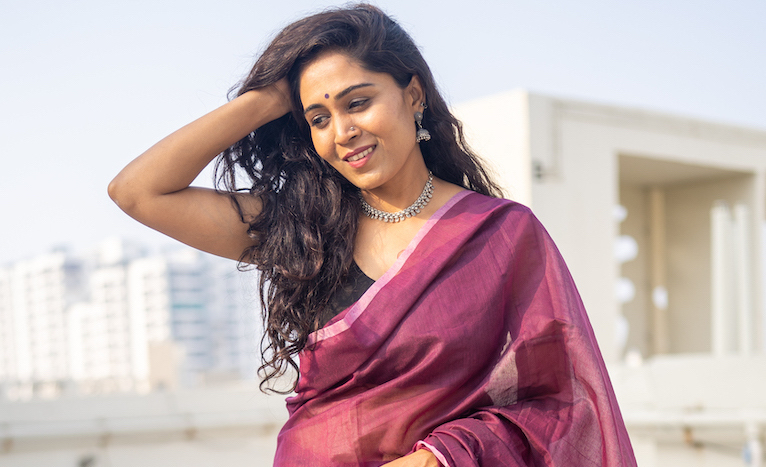With bright, glittering eyes and a passionate and fearless aura, Buddhist content creator Neha Thombre might not have had time to travel the globe yet. Yet her incisive and articulate tongue, which speaks great English, captures a host of diverse interests, from the satirical to the civic, that make her a woman of the world. She speaks to me from her family’s quiet home in India, even as her sarcastic, hilarious, and freewheeling content is going viral and getting reactions across social media.
An influencer since 2020, her YouTube channel is pushing 100,000 subscribers, and her Instagram account reached the same number of followers this month. She has been approached by several government bodies to do social media campaigns. Most recently, she worked with the Election Commission Maharashtra to promote election integrity, and also joined with the Nagpur Central Reserve Police Force’s (CRPF) deputy inspector general (DIG) to highlight International Women’s Day.
This is an extraordinary achievement not only for an Ambedkarite, but also for a content creator, especially one that started with effectively nothing except a dream of theatre and the performing arts. It was by no means a smooth or guaranteed journey. Calling herself an activist-through-comedy, she is emphatic about her working heritage.
“The Maharashtra countryside, where I grew up among a farmer’s family, is a century behind the state’s own big cities, Pune and Mumbai. The inequality is staggering. In the farmers’ communities, you may have heard of much despair and many suicides. I’ve seen and lived it. And to the doyens of culture in Pune and Mumbai, arts and culture has never been ‘our’ thing.”

It was in those big cities with bright spires and dazzling artistic and cultural scenes that Neha discovered its dark side: an extraordinarily exclusionary mindset that had no place for her budding theatrical aspirations. Her eyes were opened when she studied engineering in Pune, recollecting a great culture shock – something that still stuns her considering she had not even left the country. “The educational standards, the lifestyles, the people, the language and mindset – people in Pune were exposed to music and dance, and enjoyed such better education. I was totally shocked,” she tells me.
As with so many of us when encountering a world that is so totally different, so much – well, better – one’s reaction and internalization tends to be a bit more complex than simply loving it. Especially when, as Neha experienced, the theatre circles would not give her the time of day. “It was not a good time for me,” says Neha, observing that her potential and promise was never respected or given a chance. “I was seen as not good enough. Not prepared. I came from a village, my language was not ‘clean’ enough. My personality, the way I dressed – everything. I was just different. And so I got the worst roles, the least prominent parts, and I never got the opportunity to prove myself capable of more.”
She became a lecturer at an engineering college in Mumbai to pay the bills (by all means a completely respectable, middle-class job with decent social capital), yet her rejections in Pune haunted her. She was not one of them, and she would face the same dispiriting prejudice in Mumbai. She was able to go on stage by paying fees, but the directors never cast her in notable roles. “I was unwelcome, I was different. Even though theatre was my only refuge, I was discouraged from participating in it. And so I shifted back to Nagpur, where I found work to support myself and my family.”
In Nagpur, she launched her first solo play during 2019, and in 2020 – when COVID swept across India, she began sharing videos about observations on daily life, and several of her videos went viral, catapulting her to regional and then national attention. It was during her time back in Nagpur that she felt something shifting. Having spent some time in the big cities, suddenly she found her community looking at her differently: she was more sophisticated, more elegant, more cultured. Neha began developing an alter-ego called Thombre Bai, a middle-aged woman who makes outspoken observations about daily life. “She has been a very well-received character,” she tells me, “and I also enjoy playing an older woman. Sometimes I feel as if older women actually have more liberal perspectives than our Zoomer girls and young women.”

Her content is usually delivered via video shorts – she confesses to enjoying the shorter format partly due to her busy day job. She has also gone on TV, streamed on YouTube, and shot videos. But the shorts have the best chance of going viral, and in any case the sassy and effervescent personality of Thombre Bai, who can also be piercingly sarcastic and witty, works best with several punchlines that hit hard and often.
After years of challenges and restrictions, it is clear that she has had the last laugh. But her background – and her memories of repeated rejection – keep her humble. As an Ambedkarite, she is a believer in social justice and equality while also supporting Indian unity, embodied in the salutation “Jai Hind.” Her collaboration with official bodies is testament to her charisma and uniting instincts. “In the end, I am a humanist,” she says. “I do not believe in any national superiority.”
In the eyes of those narrow-minded snobs back in Pune and Mumbai, she should not have come this far and shot to influencer stardom in just a few years. It is somewhat amusing to wonder how they might see her current prominence – no doubt, they would probably conjure up a cope to reassure themselves of their superiority. Yet she is proof that culture and education is learned, can be assimilated, and is not the preserve of any one group. This is what she feels to be her responsibility: to be a value creator more than simply a content creator. “I don’t want to be famous for its own sake,” she insists to me. “I want my following to have meaning. If I can educate while entertaining, that would be the best.”


